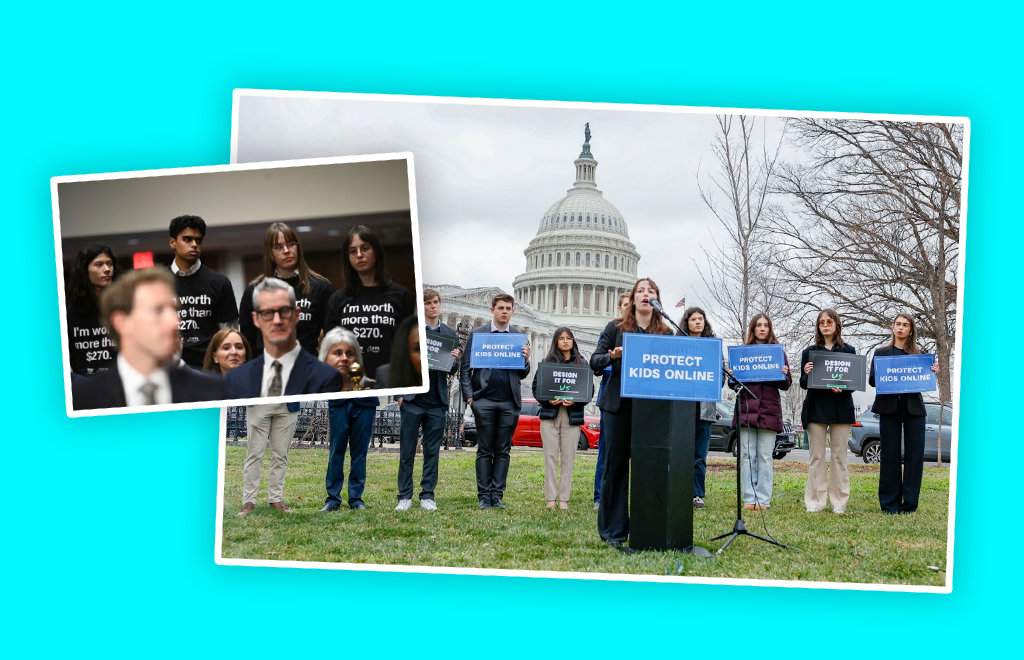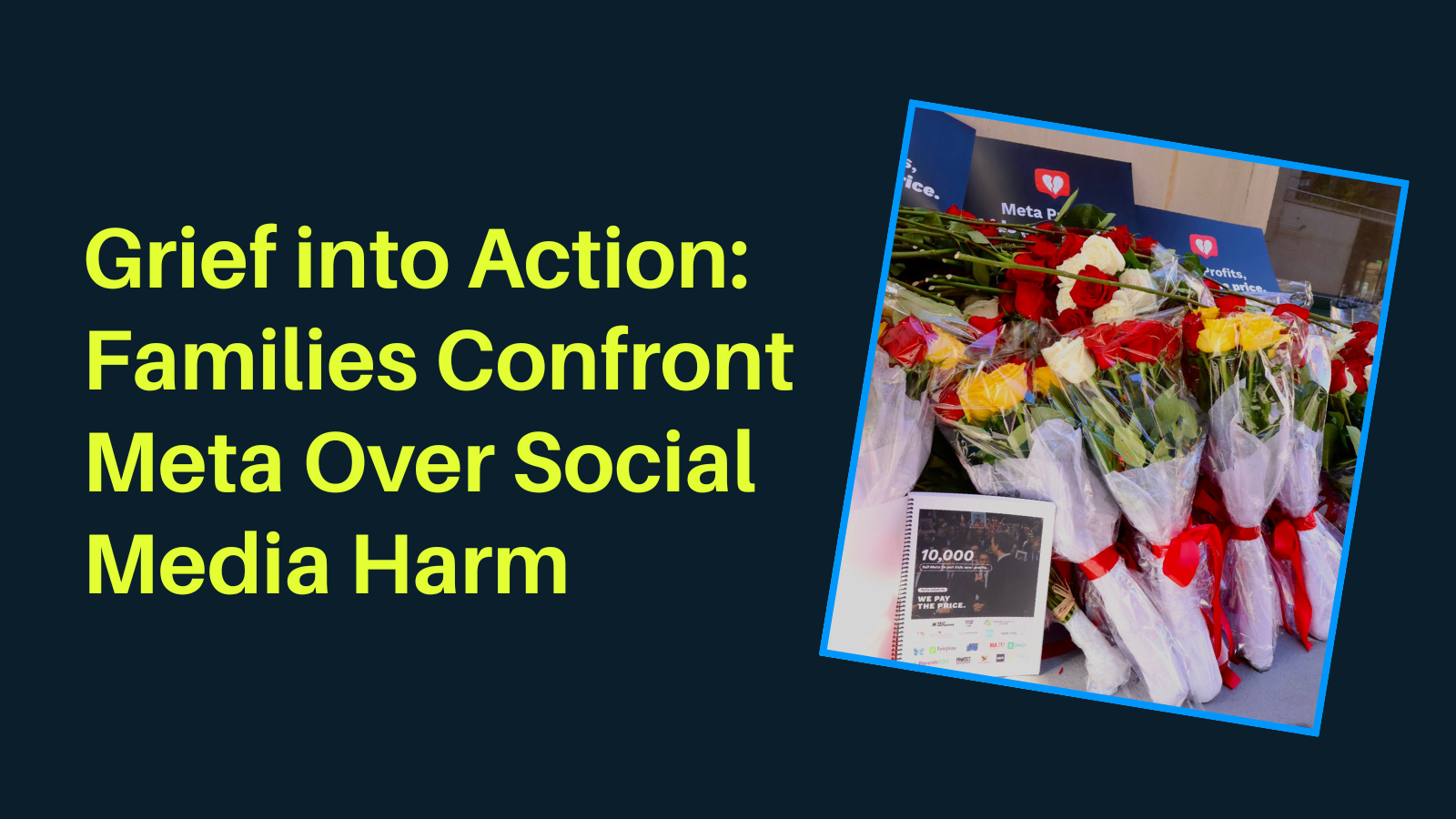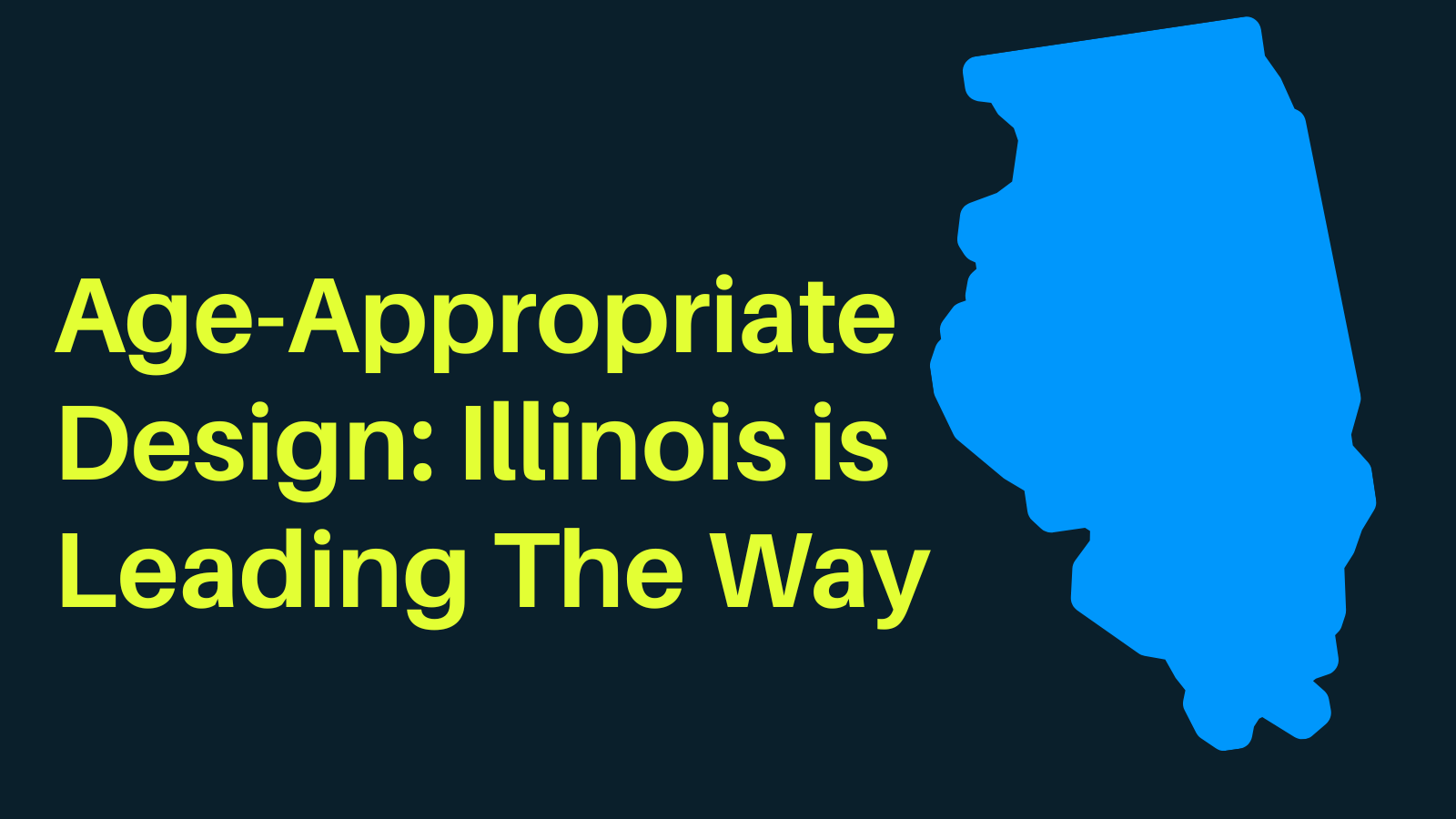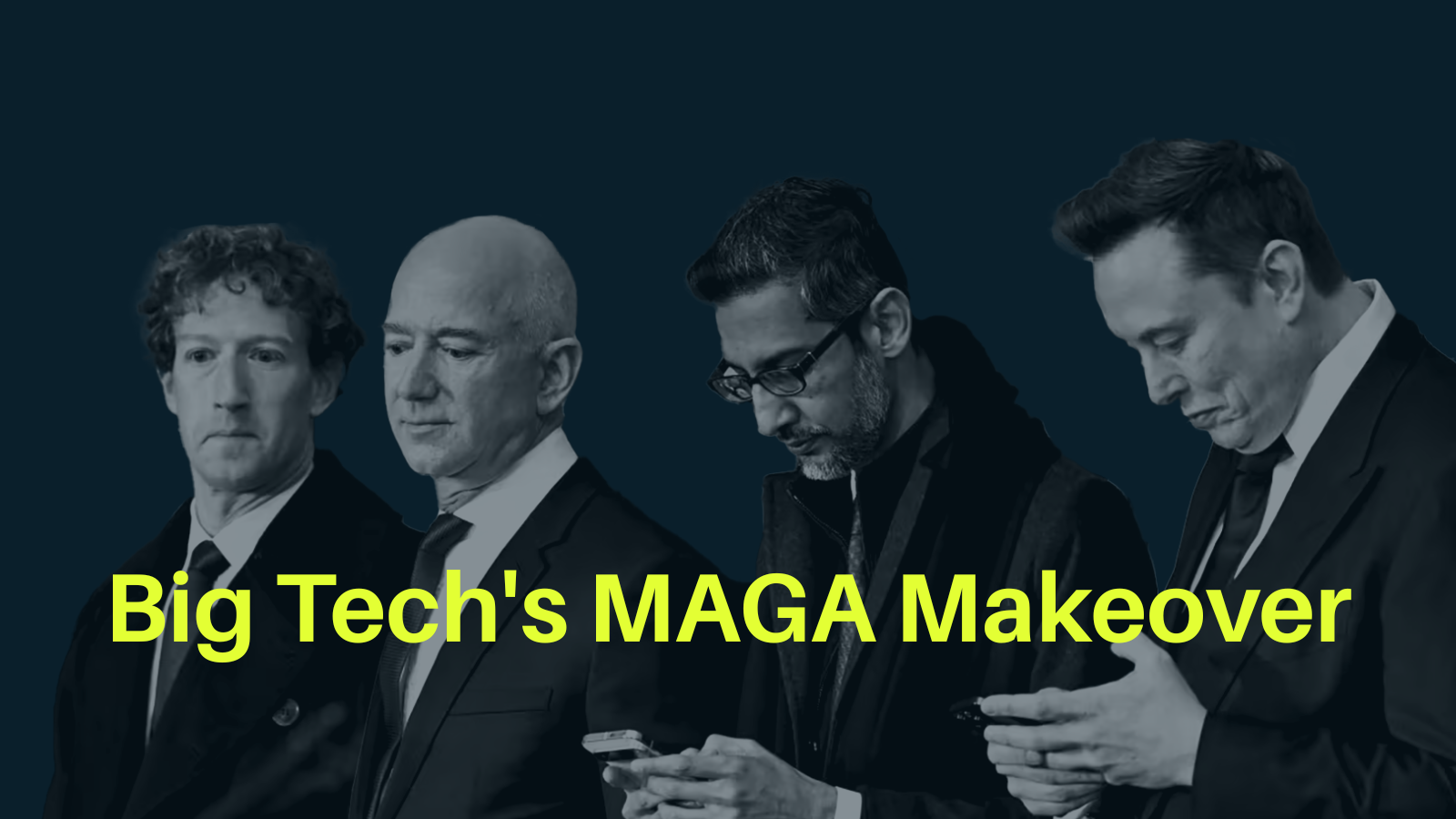By 2024, young adults in America have faced more than their fair share of life events. Let alone the tribulations of growing up, an average 21-year old will have fully experienced a recession, a global pandemic, the invention of the smartphone, the growing impacts of climate change, and an intensely polarized political environment. But for one of the most rapidly evolving hallmarks of this generation – the internet and social media – the last time Congress passed laws that address social media and online platforms happened roughly the same time they were born — in 1998.
25 years have come and gone without the passage of legislation, while tech companies continuously sprint past each other to out-innovate to hook our attention in relentless pursuit of profit. The result? Platforms with near limitless power to impact growing minds and communities, for better and worse. And over the last few years, with the help of whistleblowers, brave testimony and sheer evidence, we’ve seen what “worse” can really mean on these platforms.
On January 31st, the CEOs of five major social media platforms were called before Congress to address the harms their products have caused. The hearing was the 42nd of such a hearing since 2017 – 42 hearings in which CEOs like Mark Zuckerberg guiltlessly present themselves under oath before Congress, and shrug off responsibility for creating one of the most insidious and omnipresent products in generations. For young people, parents, and legislators alike, we’ve hit a breaking point with Big Tech.
January 31st was not just another hearing, but an opportunity to mobilize and demand action that is long overdue.
Youth activists representing Design It For Us seized the opportunity by showing up in force to the hearing. They started their day outside the Dirksen Senate Office Building to confront Mark Zuckerberg on his way to the hearing, where they asked: “Why did you cover up causing eating disorders, Mark? What are you doing to protect kids online?” Advocates were also seated inside the committee room for the duration of the hearing, wearing black t-shirts that say “I’m worth more than $270” – a creative reference to Meta’s estimated lifetime value of a young person to the company.

In a powerful moment during the hearing, Senator Marsha Blackburn pointed to the Design It For Us advocates while engaging in a heated exchange with Mark Zuckerberg, saying “How could you possibly even have that thought? It is astounding to me… Children are not your priority. Children are your product.” The youth advocates stood during the Senator’s interaction, calling attention to the text on their T-shirts and garnering applause from the audience of the hearing. Affirming the role that young people can and are playing in this fight, the moment was lauded by the Washington Post, CNN, The Verge, The Guardian, BBC and Yahoo News.
The hearing highlighted, in large part, the emotional toll that this fight has had on parents – many of whom also sat in the committee room for the hearing. In what was one of the most moving moments of the hearing, Senator Hawley demanded that Mark Zuckerberg apologize for harming and endangering young people. And, surprisingly, Zuckerberg did.
However, despite the poignancy of his public apology, we have yet to see any changes to the platform to back his admissions of sorrow. History shows that PR initiatives are all CEOs like Zuckerberg need in order to overcome moments of unsatisfactory public opinion, so why should he need to do anything more? In fact, even despite the hearing on January 31, Meta had the largest single-day stock surge later that week, adding $197 billion to its market capitalization.
That’s why our activism did not just stop at Zuckerberg’s contrived apology.
Following the hearing, Accountable Tech and Design It For Us hosted a rally outside the U.S. Capitol to call for immediate action on kids’ safety legislation. The rally was streamed on C-SPAN. We were joined by Senator Ed Markey, lead sponsor of Children’s Online Privacy Protection Act (COPPA) 2.0; Senators Richard Blumenthal and Marsha Blackburn, lead sponsors of the Kids Online Safety Act (KOSA); New Mexico Attorney General Raúl Torrez who has been leading a lawsuit against Meta’s harms to children; and Arturo Béjar, the latest Meta whistleblower who testified before Congress in November. Design It For Us co-chair Zamaan Qureshi, youth advocates and Design It For Us leaders Ava Smithing and Arielle Geismar, survivor parents Joann Bogard and Kristin Bride, and representatives from other partner organizations including Public Citizen and Ekō also spoke at the rally.
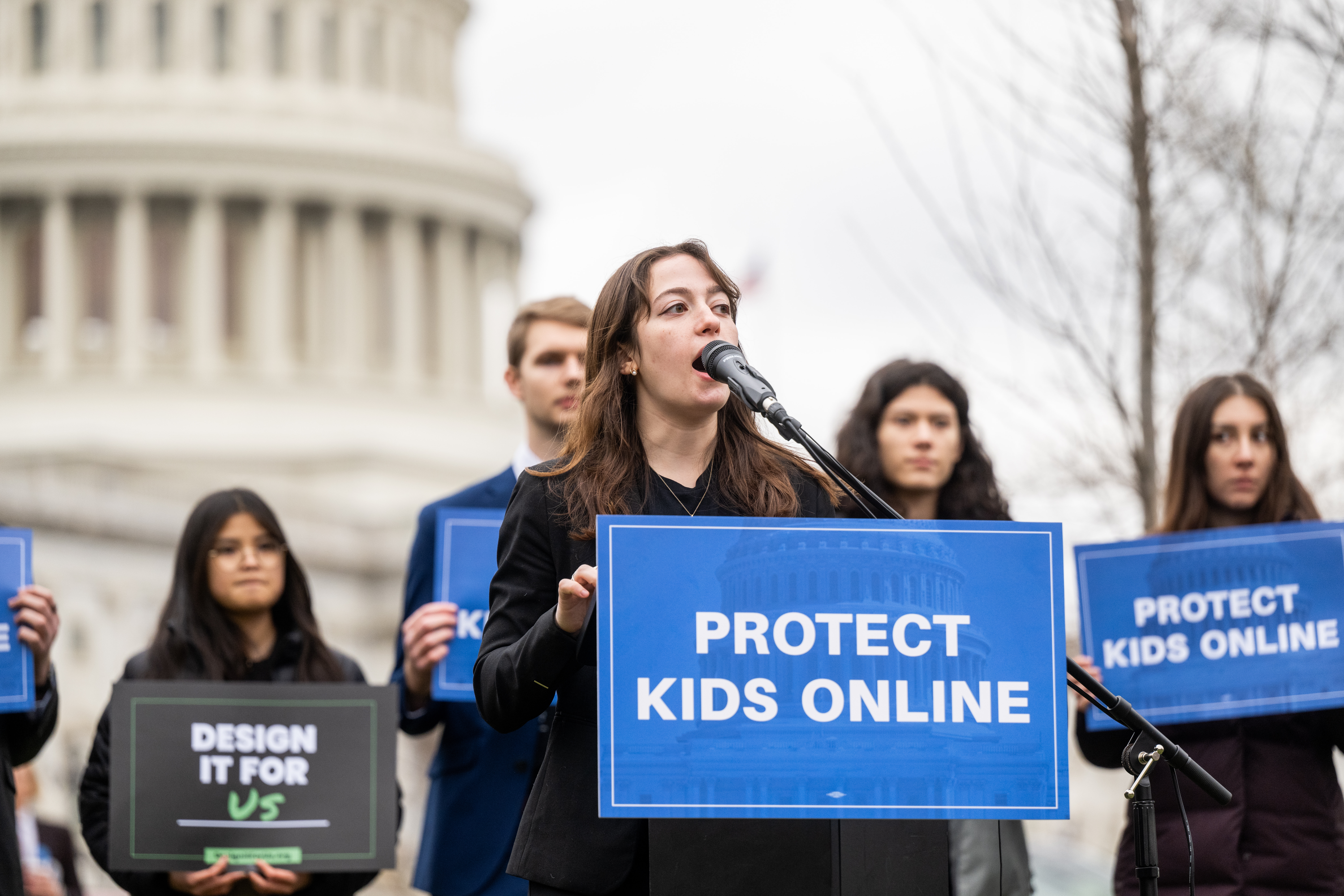
The rally firmly captured and represented a call to action: parents, young people, and legislators will no longer tolerate the false promises and PR stunts platforms use to placate the public – accountability is overdue. Moreover, the public pressure that led to the need for a hearing at all is a testament to the work of advocates at the helm of the fight. Young people and parents at the heart of activations like this rally make it clear that policy must explicitly center those impacted by its intended outcome. And when it comes to legislation that can resolve Congress’ 25 year drought and finally protect kids and teens online, advocacy is the most critical force pushing bills like KOSA over the finish line.
So what’s next?
As of the publication of this post, the Kids Online Safety Act has earned the co-sponsorship of more than 60 senators, including Majority Leader Schumer. This comes after critical updates urged by civil society groups and youth advocates. This would be a significant leap forward towards accountability in no small part due to the advocacy of watchdog groups, youth advocates and parents. It will then need the same bipartisan majority support in the House to progress to the President’s desk.
As a show of the momentum behind this issue, Senators Cantwell and Cruz have also reaffirmed their commitment by co-sponsoring COPPA 2.0, a bill that updates the existing 1998 to strengthen its provisions that center privacy by design.
Uniquely, kids’ online safety and privacy generates vast support that spans party lines. At both the state and federal levels, leaders are pairing with unlikely allies to tackle this issue. Because of that, advocates like Design It For Us – a first-of-its-kind youth-led coalition – are afforded the opportunity to continue to mobilize young people across the country and the world based on shared values and urgency. In the coming months, kids online safety and privacy advocates will fight to pass state legislation like the Kids Code in Maryland, Minnesota, and Vermont, and federal legislation like the Kids Online Safety Act and the Children’s Online Privacy Protection Act to pass legislation that is decades overdue.
Although lawmakers are 25 years late to the fight, there’s never been more urgency to finally achieve accountability, safety and privacy online.
